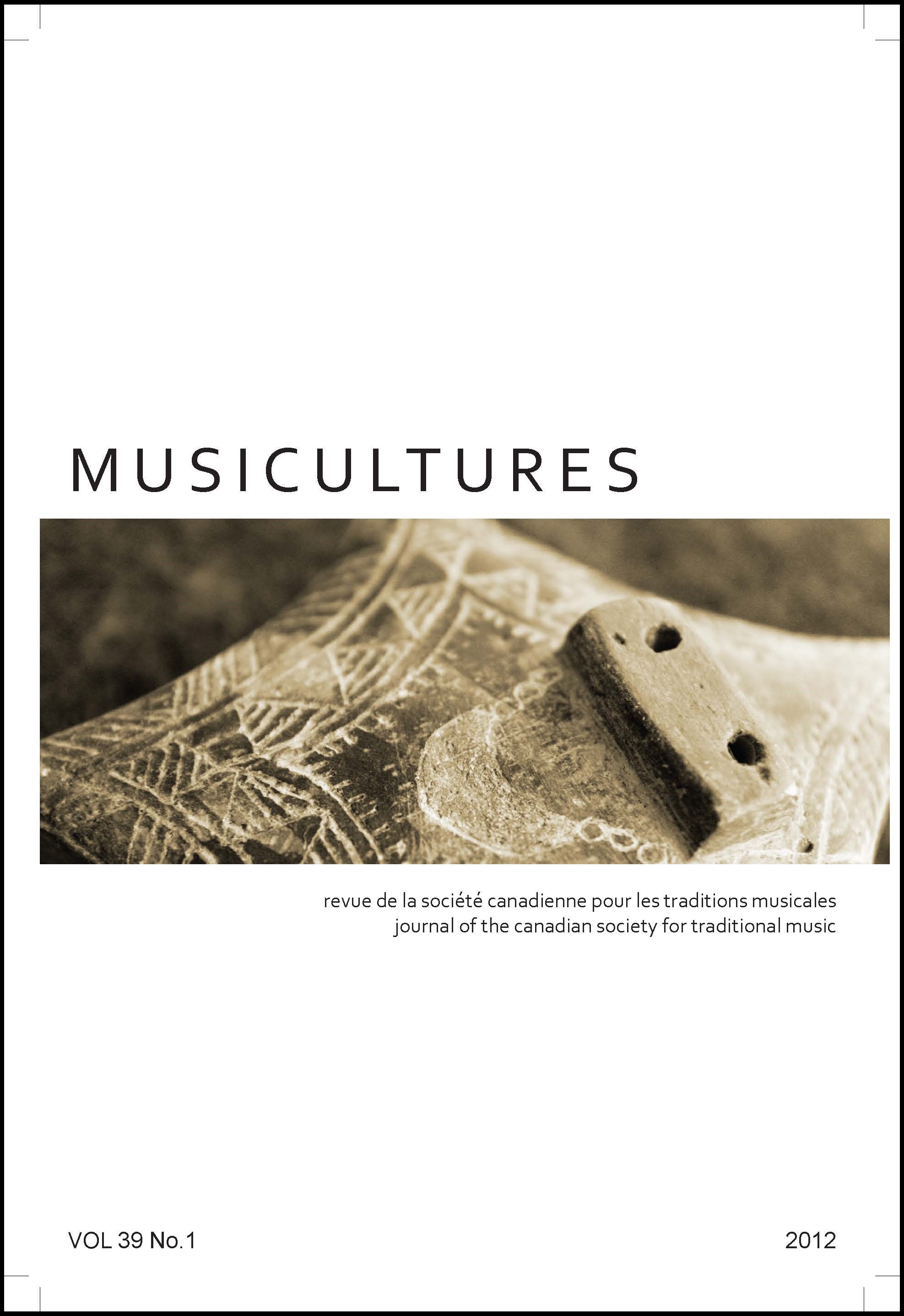Abstract
The Mi'kmaq are an Indigenous people in northeastern North America. In their culture, sound, music, and the environment are inextricably linked. Mi'kmaw conceptions of music encompass a much broader range of sounds than common in Western conceptions of music, including storytelling and other sounds, natural or otherwise. Some Mi’kmaq assert that their traditional songs were learned from birds, while others today look to animals to inspire new musical creations. In Mi’kmaw legends and myths, creatures of all orders communicate by singing. In this paper, I demonstrate through Mi’kmaw legends that all orders of animals sing or make music, describe musical sharing between animals and humans, and consider how environmental change may impact traditional Mi’kmaw genres and the creation of new songs.- The author retains copyright over the work.
- The author grants the journal owner (The Canadian Society for Traditional Music / La Société canadienne pour les traditions musicales) an exclusive license to publish the work.
- The author may post a pre-print or post-print version of the work (see definitions below) on a personal website for up to twelve months after the work is published in MUSICultures. After twelve months, the pre-print version must be replaced with the published version.
- The author may deposit the published PDF of the work in a non-commercial online repository twelve months after the work is published in MUSICultures, or any time thereafter.
- Any such deposit must include a link to the work on the MUSICultures website, e.g., https://journals.lib.unb.ca/index.php/MC/article/view/19996
A pre-print is a work-in-progress—a contribution not yet accepted, or perhaps even submitted, to MUSICultures.
A post-print is the version of a contribution after peer review and acceptance by MUSICultures, with revisions completed.
The published version is the PDF file of a contribution as it appears in MUSICultures.
Please note that academia.edu and ResearchGate.com are both for-profit repositories; authors may not deposit the published PDF of the work in these repositories until after the journal’s embargo period.
For permission to reprint or translate material from MUSICultures, please contact Heather Sparling, General Editor of MUSICultures (heather_sparling@cbu.ca).

